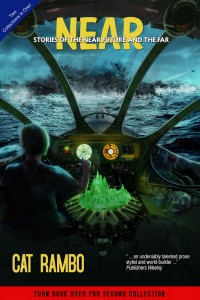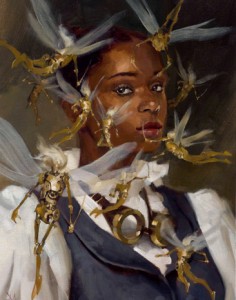One of the many interesting (and sometimes positive) things that’s come out of that controversy has been a lot of examinations of Internet culture and many of its subsets. Before last year, I had only the vaguest idea what “chan culture” would be, so I found this piece really fascinating, particularly because questions about anonymity are (imo) going to continue to rear their heads whenever they bump into notions of transparency in coming years.
The full piece, How imageboard culture shaped Gamergate, appeared on BoingBoing. Its author has produced a lot of interesting pieces about Gamergate, usually composed as Storify pieces, such as these: Gamergate, Sexism, and Tribalism; Why I Oppose #Gamergate
The article is talking specifically about image boards, and here’s a chunk from it that describes the culture:
These anonymous imageboards have their own idiosyncratic culture, despite the lack of permanent identity. Posters call themselves anons, or occasionally channers. While anonymity is a core part of this identity, merely being anonymous does not make you an anon. Rather, it’s about identifying as a larger whole. Capital-A Anonymous, such as the Project Chanology protestors and the hacking/activist groups like @youranonnews, are anons, but most anons don’t think of themselves as part of Anonymous.
Without identity, every anon is whoever they want to be at the moment. It’s freeing! Anons exalt these imageboards as the only place people can truly be themselves, without being burdened by their identity or consequences. This includes genuinely awful or hateful opinions. Anons have a broad, often absolutist view of free speech, sometimes extending that so far as to include threats of violence or extreme pornography. Anons are extremely protective of their culture and this very broad view of free speech, because of both great faith in their ability to self-police argument and an unconscious, internal reliance on irony.
The atmosphere is that of a paradoxically jovial angry mob. Almost everyone sees their own point of view as the consensus, assuming that most people most people agree with them. Any possibly contentious statement is presumed to be ironic, told as a joke or to rile up people who disagree. Since everyone assumes that anyone who disagrees is arguing in bad faith and doesn’t mean what they’re saying, anyone who disagrees is a fair target for apparently hateful mockery. This basic assumption of bad faith applies even when arguments are long-lasting and well-known: for example, the console war arguments in /v/, 4chan’s video games sub-board. However, this mockery is defanged by anonymity and irony.
Everyone’s anonymous, so a poster can just join the winning side of an argument, cheerfully mocking their own older posts. One poster can even play both sides from the start. Every anon can choose whatever opinion they want to have on a post-by-post basis, so everything flows smoothly even as people hatefully attack each other for having the wrong opinion. Anons believe in this free marketplace of ideas: good ones survive the firestorm, while bad ones burn to ash as everyone dogpiles on mocking them.
Wayne and I were talking about this conception of discussion/argument today and I can at least partially understand how it’s shaped some of the conversation within Gamergate (the overall situation, not the group) and created many of the problems. (Anders Sandburg has an interesting piece about such culture clashes.) I think it’s important to look at the background people are coming from and the Internet etiquette norms that they’ve absorbed.
At the same time, bad faith arguments are something I don’t practice and I find trolls kinda appalling, because the idea of getting enjoyment from making other people angry, upset, or otherwise unhappy seems something only a retrograde would relish. I blogged about arguing on the Internet a while back and said I’d follow up and talk about bad faith argument, but I never have, because I find its habitual practitioners antithetical to the way I try to think.
Don’t get me wrong. I like debate, and life with Wayne is a lively series of conversations in which one or the other will often take the role of devil’s advocate just to see how sound or defensible an idea is. But that seems different to me than taking on the Internet identity of someone who believes something just to see if you can get other people riled up enough to waste time on composing eight page replies to your argument rather than something, I dunno, actually productive or enjoyable.
But, as Wayne can testify, I am painfully earnest about a number of things, including the idea that the human race should be advancing and that part of that advance is being fairer about our treatment of the people and world around us. The idea that love is both greater than and preferable to hate. That cruelty only creates more cruelty. That civility and an assumption of good faith should be the baseline, rather than the exception. And that we are fallible creatures who are nonetheless capable of learning from both experience as well as questioning ourselves.
Part of my plea in the Clarkesworld column is that we stop arguing in bad faith and lazy categories. It’s a Quixotic fight, but I’ll continue to carry its banner. And part of that banner is to argue in good faith, to ask questions and interrogate the world around me to see what blinders it’s imposing on me. That’s a vital part of making good art. And good conversation.






